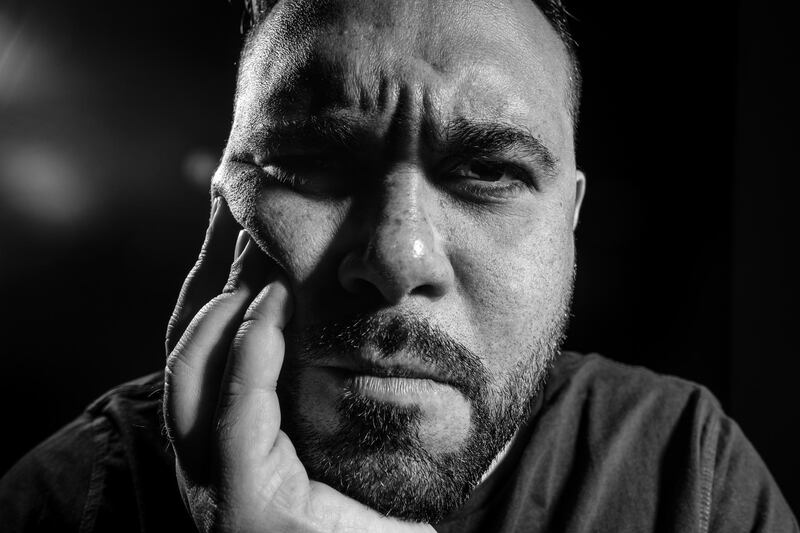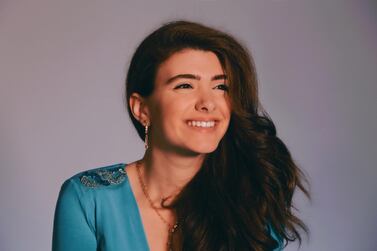Saleh Hamed’s debut album is a throwback – and in more ways than one.
As well as its vintage synth-pop and hip-hop sounds, the project itself has been in the making for more than 10 years.
Not that Hamed, who released The Album under his stage name Dozenz, hasn't been busy.
In fact, the producer, pianist, rapper and sometimes vocalist has been involved in many landmark moments of UAE music history. His previous band, Gray Test, were one of the first home-grown bands to have their songs played on local radio, in addition to performing at a UAE music festival.
His stint with Juliana Down, meanwhile, had him co-writing songs to 2011's Empires, one of the first albums by a UAE rock band released on a major music label.
A man of action
Hamed recalls those moments with a certain relish.
“I always viewed myself as an instigator and provocateur,” he says from his Abu Dhabi home. “But then again, I had to be. Back then, you needed to work hard to get your work heard.”
That meant calling up hosts at Capital Radio and hounding them to play Gray Test tunes.
When one such host agreed to play the track Small Change on her Friday night show, Hamed drove all the way to Dubai to hand deliver the CD with a box of chocolates.
His approach also included building contacts with promoters, through both friendship and haranguing, in order for Gray Test to play at 2003’s Gig on the Green alongside headliners Fun Loving Criminals, Suede and Dexys Midnight Runners.
While the hustle may sound impressive, Hamed says it was the only way for rock bands to survive.
“Rock bands, in their nature, are very industrious and can adapt to many situations,” he says. “But ultimately, their livelihood all depends on being on that stage. So back then, you needed to fight and push your way in order to get those opportunities. There was no other way to do it.”
The fight continues
Hamed now finds himself in a new landscape.
DJs are the new rock stars and songs – and chocolates – can be delivered online. After a decade away from music to focus on raising a family and his government career, Hamed felt the time was right to get back to creating again.
“A lot of that, I think, is because now there is an appreciation for keyboardists, which is what I primarily play,” he says. “Keyboards have replaced the guitar and I thought it would be great to explore that and see what I can do.”
That enthusiasm is all over The Album, a fun and vibrant collection of barrelling synth-driven numbers recalling 1990s pop and dance music.
Euphoric opener Need Nobody, with its alternating male and female vocal leads, recalls Paula Abdul's Opposites Attract, while iLike has the kind of turbo-charged synth riffs that hark back to the Europop era. Hamed does nod to more modern styles with the trap music sounds of Falls Apart and the EDM pop of Invincible.
If all those eclectic flavours sound messy, then that’s the point.
Hamed says The Album, available at SoundCloud, is a snapshot of an artist with a restless muse. He confirms a more "streamlined" version of the project will appear on major platforms such as Spotify and Apple Music later in the year.
Whether people will connect with those tunes, he says, remains to be seen.
“In a way, it is the same kind of fight that I had all those years ago,” he says with rueful chuckle. “Where back then it was just about getting your music heard, now it’s about having your voice cut through an already saturated field. With technology and the internet, thousands of songs are uploaded each day.”
Local music is a national interest
But that struggle can’t be faced alone, and Hamed calls for government intervention to support the country’s independent music scene.
“We need regulation in place that says radio must have 10 per cent local content, like they do in France, Canada and many other countries,” he says.
“We need to create those opportunities because radio stations ultimately look out for their interests. But I say that it is in the national interest that we foster the arts.”
Until then, Hamed says the fight continues. At least now, it is backed by a riotous soundtrack.







